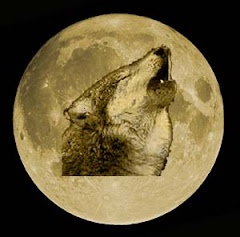Catal Huyuk flourished between 7200 and 5500 b.C., in ancient Anatolia--what is now Turkey. It is considered to be the very first city. It housed up to 6,ooo people in its heyday. It was both a multicultural and multiracial city.

Aquí se aprecia un plano de la ciudad. Las casas eran construidas unas junto a otras, con paredes medianeras. La gente usaba escaleras para entrar por las ventanas.
Here we can see a layout of the city. Houses were built next to each other, sharing median walls. The people used ladders to get in through the windows.

Aquí se ve las ruinas de un templo. En la ciudad abundaban los santuarios; se ha encontrado numerosas efigies de la Diosa Madre, cuyo culto se remonta al Paleolítico. Tambien hay murales, esculturas, pinturas y grabados en alto relieve.
Here we see the ruins of a temple. There were many shrines in the city; many figurines of the Mother Goddess have been found-the cult of the Mother Goddess can be traced back to the Paleolithic Era. There are also wall paintings, sculptures, paintings and reliefs.

La economía de la ciudad se basaba en la agricultura y el comercio. La sociedad se organizaba bajo el ritmo lunar. Los ritos del nacimiento, la fecundación y la muerte eran fundamentales en su cosmogonía.
Aquí se aprecia el rito de la excarnación. Los buitres devoran la carne del esqueleto, que será enterrado en las mismas casas. El alma renace luego.
The economy was based on agriculture and trade. Society was organized accordingly to the lunar movements. The rites of genesis, fecundation and death were central in their cosmogony. Here we can see the excarnation rite. The vultures eat the flesh; the skeleton will be buried in the very houses. Later, the soul is reborn.

Esta es probablemente la más antigua representación de un ritual. Vestidos con pieles de leopardo, los participantes bailan y tocan instrumentos de percusión.
This is probably the most ancient representation of a ritual. Dressed with leopard skins, the performers dance and play percussion instruments.
This figurine of the Goddess, seated between lions, was found in a grain bin.

Más información en las siguientes direcciones:
More information in the following sites:
www.telesterion.com/catal1.htm
www.catalhoyuk.com/
www.focusmm.com/civcty/cathyk00.htm
www.marlamallett.com/ch.htmwww.marlamallett.com/ch.htm
www.smm.org/catal/
www.telesterion.com/catal1.htm
www.catalhoyuk.com/
www.focusmm.com/civcty/cathyk00.htm
www.marlamallett.com/ch.htmwww.marlamallett.com/ch.htm
www.smm.org/catal/


No comments:
Post a Comment